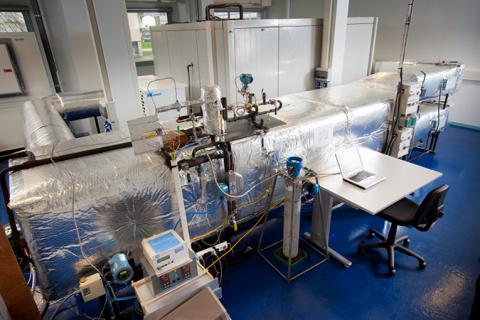Energy of thermal and refrigeration systems
Context
Energy is today a collective and individual concern and affects all sectors: industrial, commercial, financial ... Changes to new energy systems are needed in all sectors, particularly transport, building and industry. It is thanks to the research that these future systems will be able to be economical and respectful of the environment.
Objectives
- Develop modeling tools for energy systems capable of optimizing their operation, notably by energy and exergy analysis, but also by the use of mono / multi-criteria optimization methods (I-CAES, AA-CAES, HP, refrigeration systems, energy network, energy management, ...);
- Minimize the environmental impact of refrigeration systems through the use of new refrigerants and secondary refrigerants as well as the optimization of components;
- Develop energy recovery devices for the production of cold, heat or electricity (ORC, sorption systems, ejectors, ...).
Scientific skills
- Implementation of different test benches to analyze the dynamic behavior of refrigeration systems
- Study of heat and mass transfers in innovative two-phase refrigerants or secondary refrigerants and for absorption systems (CO2, ice slurry / paraffins, convective boiling refrigerants, boiling under high or low reduced pressure, etc.)
- Study of heat and mass transfers during evaporator icing
- Development of transient and steady-state models of refrigeration systems, heat pumps and complex heating and cooling systems
- Modeling of air flows, heat and moisture transfers in refrigerated enclosures (wine cellars, refrigerated truck trailers, vaccine boxes, etc.). Study of the aging of these enclosures.
Some international collaborations
Ecole Polytechnique Fédérale de Lausanne (Switzerland), CERN, Université Polytechnique de Bucarest (Romania), Université de Naples (Italia), Univ. Liège (Belgium), Univ. Lucerne (Switzerland), Univ. Itajuba (Brazil), Univ. Ghent (Belgium)
Some national collaborations
CEA/LITEN/LETH (Grenoble), LOCIE (USMB, Chambéry), LGP2ES - EA21 (CNAM Paris), LaTEP (UPPA, Pau), IRSTEA (Antony), LiP6 (Sorbonne-Université, Paris), EM Lyon, IREGE (USMB, Chambéry)
Recent industrial partnerships


